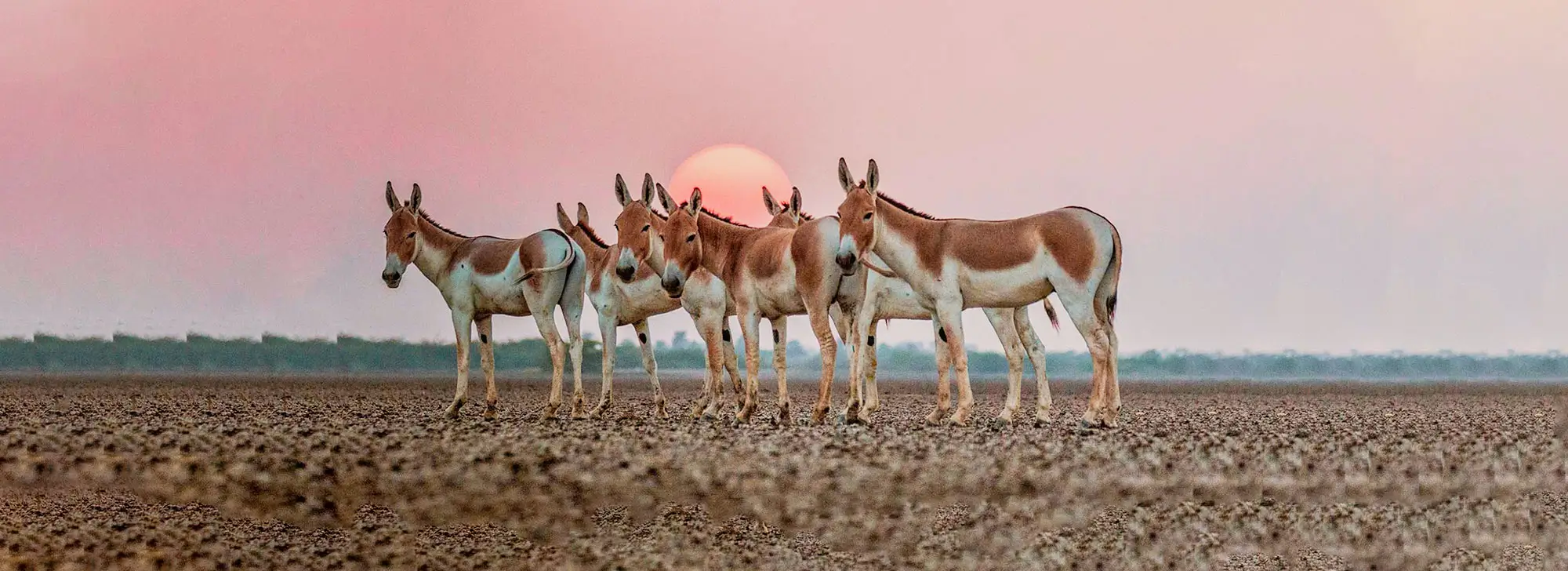
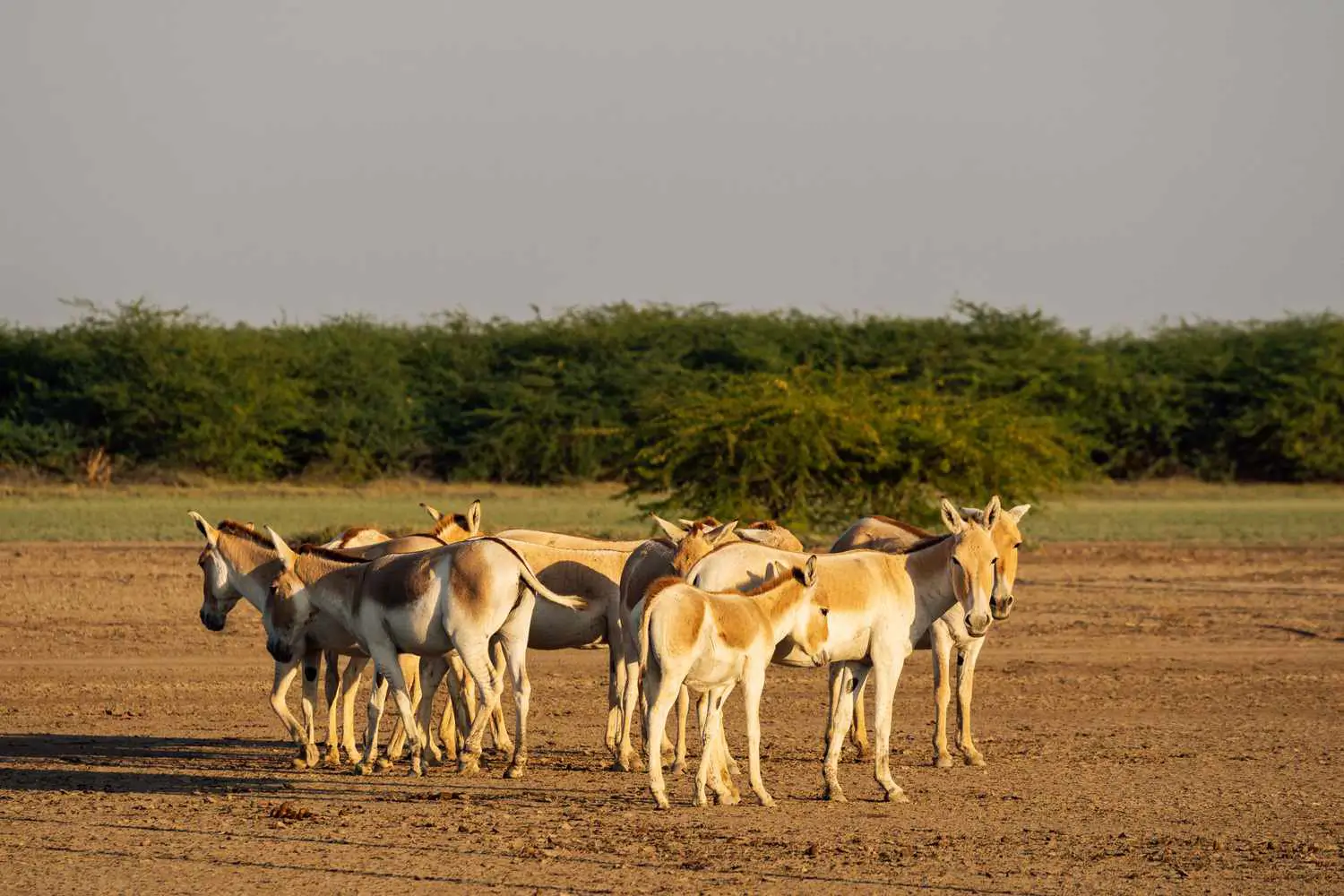
Wild Ass
Sanctuary
Latest Update : For the upcoming season 2025/26, safari bookings are open for Gir National Park. Always book your safari in advance.
The Wild Ass Sanctuary of Gujarat is widely known for its huge population of Wild Ass which are found in big groups in the vast span of desert lands and said to be one of the largest wildlife sanctuaries in the state. Apart from Indian Wild Ass, the region beholds many avifauna species from different parts of the world. The sanctuary covers an area of around 5000 square kilometres of the Little Rann of Kutch which adds to the uniqueness of the sanctuary. The sanctuary is also unique and quite favoured by birdwatchers and ornithologists because it houses many rare and endangered species of avifauna.
As the season of monsoon arrives in the region, the entire area gets filled with shallow water and serves as a feeding ground for several birds and invertebrates creating a paradise for nature lovers. The sanctuary attracts around 75000 birds especially, in the winter season from November to February including both resident and migratory birds from different parts of the globe. In conclusion, Wild Ass Sanctuary is a great destination for wildlife enthusiasts and bird watchers because of its unique landscape, coupled with the diverse flora and fauna.
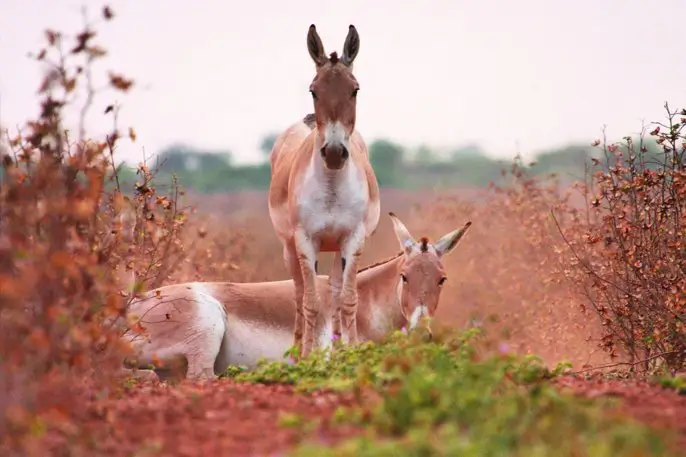
The Wild Ass Sanctuary of Gujarat dates back to the year 1973 when it established the title of sanctuary to protect the endangered Indian Wild Ass. The sanctuary was established under the Wildlife Protection Act of 1972 because the last groups of Indian Wild Ass are found here and need to be protected at any cost.
The area of the sanctuary was also in discussion to be declared as a World Heritage Site. Throughout the whole world, the area is renowned for its natural and geomorphological value and has high biodiversity conservation significance. Internationally, the areas of the terrestrial and coastal ecosystems of the Little Rann of Kutch were recognised under the framework of UNESCO's Man and Biosphere (MAB) program.
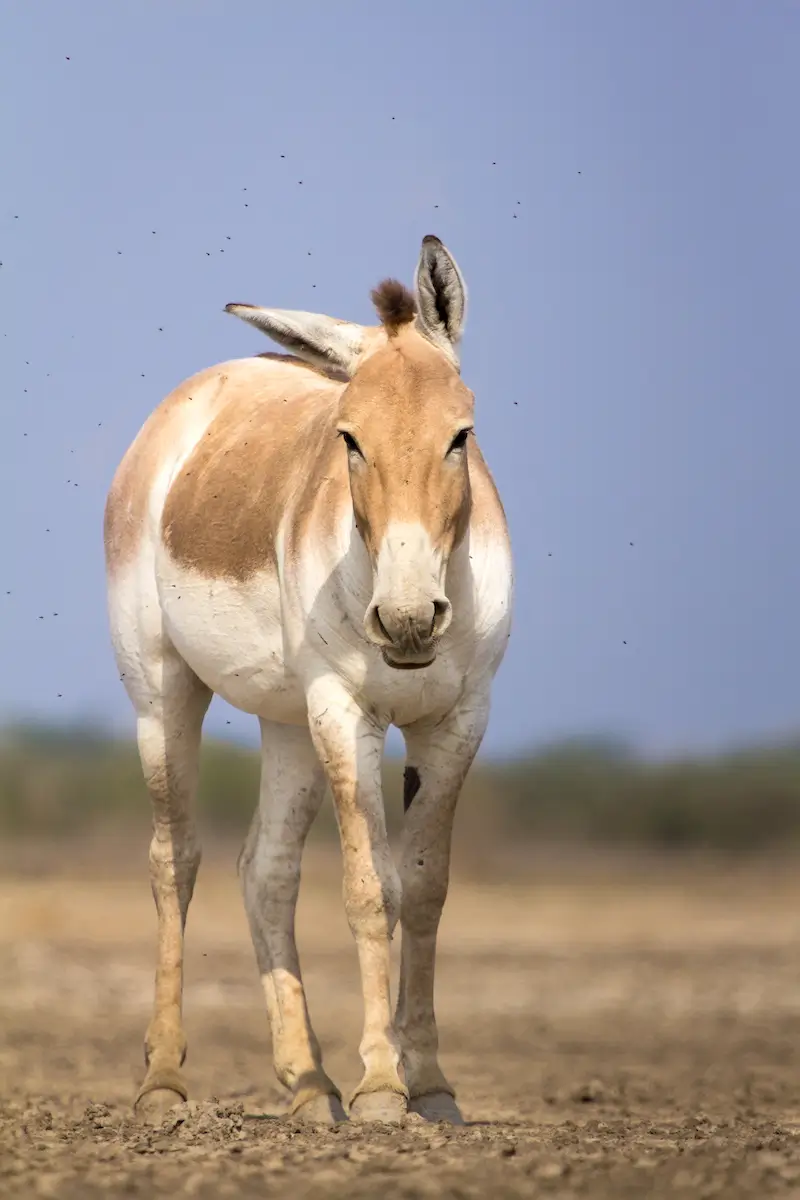
Bird enthusiasts, ornithologists and nature photographers can witness a wide range of birds such as Greater Flamingos, Eurasian Pigeon, Pale harriers, black shouldered kite, Common Teal, Great crested grebe, Common cranes, and Demoiselle Crane, among others. The bird sanctuary is visited by many migratory birds from different parts of the country and the globe including Sandgrouses, Desert Wheatears, Ten Species of Lark, the White-Browed Bulbul, Indian Coursers, Stoneplovers, Shrikes, Ducks, Geese, Ibis, Spoonbills, Godwits, Stints, Sandpipers, Shanks, Moorhens, Saras Cranes, Indian Flamingoes, and Pelicans. The sanctuary also acts as a refuge for many internationally threatened and rare birds like the Houbara bustard, dalmatian pelicans, hawks, harriers and falcons.

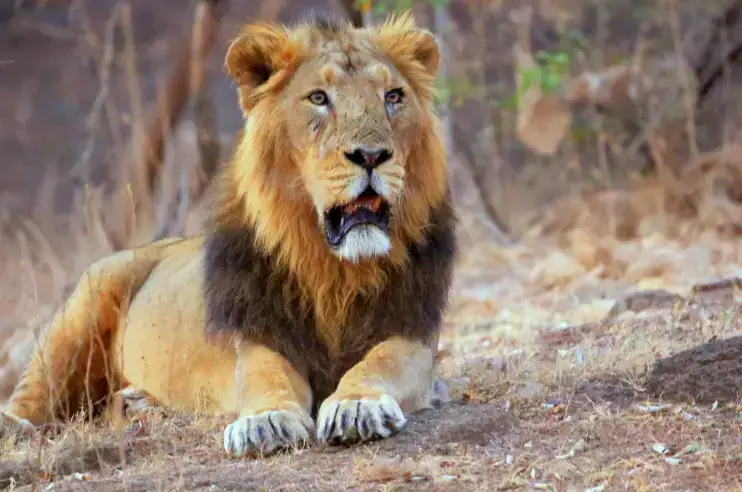

Some Frequently Asked Questions About Gir
Get In TouchThe main attraction of the Velavadar Bird Sanctuary is the Indian Blackbuck, a species of antelope native to India apart from unique bird species.
The best time is during the winter months from November to February when a huge flock of migratory birds travel from far off destinations.
Bhavnagar Airport is the closest to the bird sanctuary as it is around 50 kilometres away. Opt for any local transport or private cabs to reach the sanctuary.
Yes, visitors can hire guides who are knowledgeable about the sanctuary's avifauna. Guides can enhance the visiting experience by providing detailed information on the birds and helping to spot different nests.